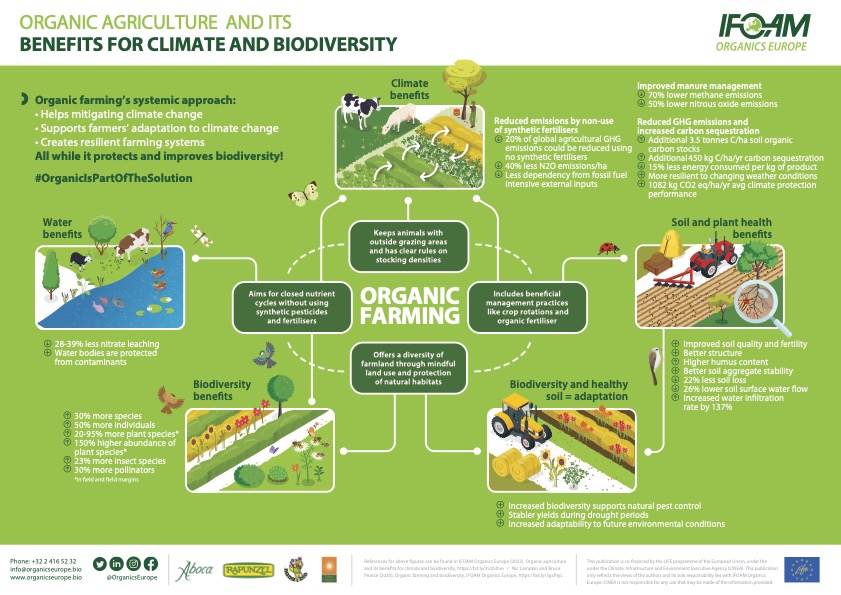The multiple benefits of organic for climate and biodiversity – visualised in our new infographic
The systemic approach of organic farming contributes to climate mitigation, supports the adaptation of farmers to the consequences of climate change and increases the resilience of farming systems, while protecting and enhancing biodiversity.
Common practices in organic farming, such as crop rotations and using organic fertiliser, and the fact that organic farmers refrain from using synthetic pesticides and fertilizers, lead among other benefits to:
- An average climate protection performance of 1082 kg CO2 eq/ha/year
- Additional sequestration of 450 kg Carbon/ha/year
- 28-39% less nitrate leaching
- 30% more species and pollinators
- soil erosion is reduced by 22% and soil loss by 26%
- 40% less NOx emissions/ha
Find this and many other benefits of organic agriculture for climate and biodiversity at one glance in our new infographic.


The work of IFOAM Organics Europe on this topic is co-financed by the LIFE programme of the European Union, under the Climate, Infrastructure and Environment Executive Agency (CINEA). This page only reflects the views of the authors and its sole responsibility lies with IFOAM Organics Europe. The CINEA is not responsible for any use that may be made of the information provided.

